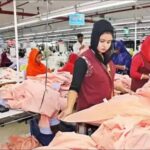Sustainability In Textiles: Are We Greenwashing?

“Nowadays, it seems it has become fashionable to talk about sustainability in all walks of life. Mostly, we’re greenwashing!” said Naresh.
In an instant, a scene flashed in my mind about an event the other day when I overheard somebody telling his friend, “For the world to achieve sustainability, my teacher told us to turn off the lights. I tried it once and nearly ran over a guy on a bike.”
I was so engrossed in my imaginary world until Naresh’s voice brought me back to reality.
“Sustainability has turned into both a political and business buzzword, making it increasingly challenging to approach it seriously. Even a terrorist now labels himself as an eco-terrorist while making bombs from natural, organic, fair trade and recycled components!” he remarked.
I couldn’t help but laugh at his joke.
In fact, we were on our way to meet a merchandiser working for a major textile brand that is involved in numerous sustainable activities. When we reached the house-cum-office of the merchandiser, I was astonished by the luxury of the place. Everything was equipped with the latest state-of-the-art technology.
“He must be making a fortune from his glamorous merchandising job,” I thought.
Ravi, the merchandiser, was waiting for us.
I was taken aback by his appearance. Naresh had informed me that the merchandiser was a young man, but what I saw was a fragile individual with droopy eyes and a slumped posture. His face looked worn, with dark circles under his eyes.
We had approached him to supply yarn for his brand. As he spoke about the sustainable processes his brand had adopted, he seemed to struggle for breath and reached for an inhaler to aid his breathing. At one point, he used a self-injecting syringe to administer insulin.
Observing my curious expression, Ravi said, “You’re thinking right! I have all sorts of health issues. It’s hard to believe I was fit and healthy before entering this merchandising job.”
“Why? What’s happening here that’s affecting your health?” I inquired.
With a sigh, he continued, “The life of a merchandiser is often romanticized as glamorous, but behind the scenes lies a harsh reality of long hours, relentless stress and overwhelming responsibilities. We, the merchandisers, are unsung heroes in the textile industry, responsible for ensuring the smooth flow of products from manufacturers to store shelves. However, the constant pressure to meet targets, manage inventories and deal with demanding suppliers can make our lives unbearable. This is the dark side of our profession and now you’re witnessing the toll it has taken on our well-being.” He coughed as he finished explaining, showcasing his illness.
I began to grasp the various aspects of the merchandising role as below.
Endless Hours
Merchandisers are expected to work tirelessly, often with little or no rest. Their workdays extend far beyond the standard 9-to-5. Many merchandisers find themselves checking emails and taking calls even during their personal times.
The never-ending pursuit of meeting deadlines can lead to sleep deprivation, impacting both physical and mental health. Long hours spent traveling between stores, warehouses and supplier locations further add to their exhaustion.
Pressure to Perform
The pressure to achieve sales targets and improve profitability weighs heavily on a merchandiser’s shoulders. The stress is magnified during peak seasons or promotional events when sales expectations skyrocket.
In addition to meeting targets, merchandisers must also handle numerous challenges, such as managing inventory levels, handling stock-outs and overstock situations and negotiating with suppliers for better deals. A single miscalculation can have severe repercussions on the company’s bottom line, leaving the merchandiser to bear the brunt of the blame.
Dealing with Demanding Suppliers
Suppliers can be a formidable force in a merchandiser’s life. These relationships require careful maintenance and any miscommunication or disagreements can lead to delays in deliveries or loss of preferred supplier status.
Merchandisers often find themselves in a tough position, balancing the interests of their company and those of suppliers. This constant juggling act can take a toll on their mental and emotional well-being, as they navigate delicate negotiations and maintain professional relationships.
Lack of Recognition
Despite their critical role in driving sales and ensuring a seamless supply chain, merchandisers often feel undervalued and underappreciated. Their efforts are frequently overshadowed by the limelight bestowed upon marketing and sales teams, leaving them feeling like an invisible force behind the scenes.
This lack of recognition can lead to demotivation, making it even harder for merchandisers to find fulfilment in their work and foster an environment where burnout becomes an inevitable consequence.
Conclusion
The term “sustainability” has a complex meaning. It does not mean prolonging or keeping up a particular thing. It encompasses environmental, economic and social aspects. When we talk about sustainability, we mostly mean the environmental aspect and partly the economic aspect, but we often neglect the social aspect.
Social sustainability affirms that healthy communities have just leaders who treat everyone with equality and ensure that labour, cultural and personal rights are respected. People are protected from discrimination and exploitation and universal human rights and basic necessities are attainable by all. Until we achieve sustainability that covers all three aspects, we will only be engaging in greenwashing.














